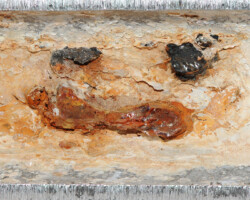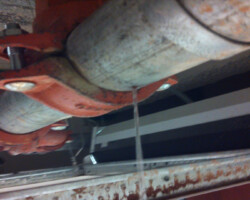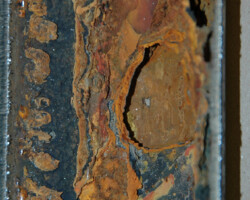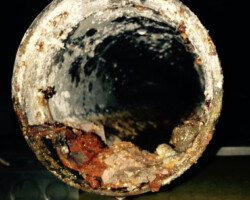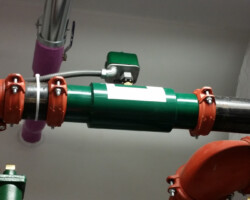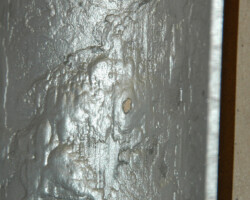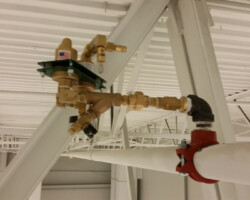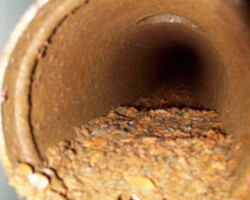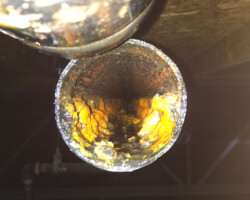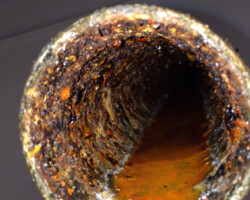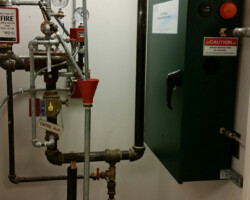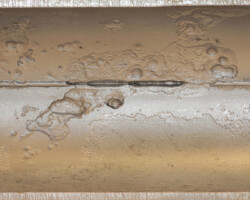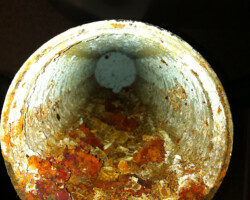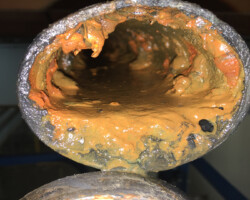The Importance of Fire Extinguisher Inspections and Maintenance
How to Maximize the Lifespan of Your Fire Sprinkler System Installation and Maintenance
November 8, 2024Safety Measures to Avoid Fire in Factories and Warehouses
November 15, 2024Fire extinguishers are a crucial part of any fire protection strategy, but their reliability depends on regular inspections and maintenance. As outlined by NFPA 10, the Standard for Portable Fire Extinguishers, proper care of fire extinguishers ensures they will work effectively when needed. Whether performed by a building owner or a certified contractor, these checks are critical to keeping your fire protection equipment in top condition.
In this post, we’ll explore the importance of monthly inspections, annual maintenance, and common issues that may be identified, all of which play a key role in fire safety.
Monthly Inspections
Monthly inspections can be performed by the building owner or facility staff and are essential for ensuring that fire extinguishers are readily accessible and fully operational. These inspections should check for the following issues:
- Damage to the Fire Extinguisher: Check for visible signs of physical damage such as dents, cracks, or corrosion on the extinguisher’s body.
- Discharge: Ensure the extinguisher has not been discharged. If the pressure gauge shows low or no pressure, the extinguisher needs to be serviced immediately.
- Bent Pull Pin: A bent pull pin can prevent the extinguisher from being used in an emergency. Ensure the pin is straight and secured properly.
- Zip Ties on Pull Pins: While safety seals are required, ensure there are no zip ties or unauthorized restraints on the pull pin that could prevent easy activation.
- Mounting and Accessibility: Verify that the extinguisher is mounted at the proper height (generally between 3.5 and 5 feet from the floor), easily accessible, and not obstructed.
Annual Maintenance by a Certified Contractor
In addition to monthly inspections, NFPA 10 requires that fire extinguishers undergo annual maintenance by a licensed contractor. Certified contractors like Columbia Fire will check for more in-depth issues that may not be visible during a monthly inspection, including:
- Improper Type of Agent: It is critical to ensure the right extinguisher is used for the specific fire hazard. For example, dry chemical extinguishers should not be used near server rooms or other sensitive electronic equipment, where a halogen clean agent would be more appropriate as recommended by NFPA 75.
- Chemical Risks: Contractors will ensure that extinguishers with potentially damaging agents, like dry chemicals, are not located near assets that could be harmed during discharge.
- Lack of High-Flow Equipment: In areas with high-risk fire hazards such as fuel pumps or propane storage, standard extinguishers may not be adequate. High-flow extinguishers are required for these situations.
- Internal Maintenance and Hydrostatic Testing: Extinguishers need to be maintained according to the manufacturer’s schedule and NFPA 10. This includes internal maintenance, as well as hydrostatic testing to ensure the extinguisher’s cylinder can withstand pressure.
Common Issues Identified During Inspections and Maintenance
Fire extinguisher inspections often reveal issues that, if unaddressed, could prevent proper operation in an emergency. Some of these include:
- Improper Mounting: Extinguishers mounted too high or too low may not be accessible during an emergency. Proper mounting height ensures quick access.
- Blocked Extinguishers: Extinguishers must be readily accessible and not blocked by furniture, equipment, or other obstructions.
- Expired Tags: Fire extinguishers must be tagged and inspected annually by a licensed professional to remain in compliance with NFPA 10 and local regulations.
In all cases, Columbia Fire’s certified technicians ensure that fire extinguishers are maintained according to NFPA 10, protecting your business from fire hazards. Columbia Fire is also proud to represent Amerex as an authorized distributor, ensuring we provide the highest-quality fire protection equipment.
Conclusion
Proper fire extinguisher maintenance is critical to ensuring fire safety for businesses in the Greater Seattle and Tacoma areas. Monthly inspections can be performed by the building owner, but annual maintenance and more detailed checks should always be done by licensed contractors like Columbia Fire. Trust our experts to keep your fire protection systems compliant and ready when you need them most.

